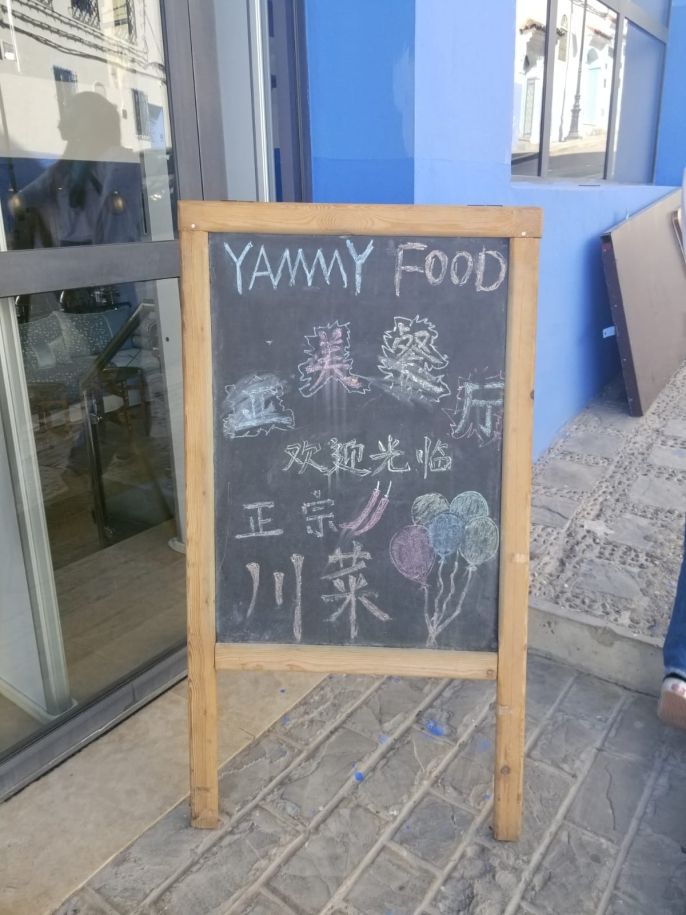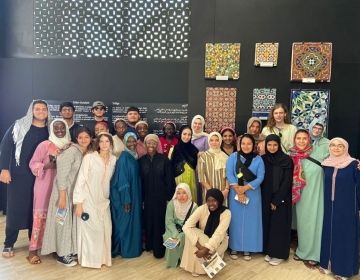“Salam, ça va?”: The Unique Linguistic Experience of Morocco
When I told people in my Arabic program back home that I was going to study abroad in Morocco, I received multiple warnings that I would struggle with the language here. Darija, the Moroccan dialect of Arabic, is notoriously different from other dialects, and even some native Arabic speakers struggle to understand it. It’s influenced by Morocco’s history of French colonialism and Spanish colonization before that, as well as by Tamazight, the language of the indigenous Amazigh people of North Africa. The grammar is a bit different, the vocabulary varies wildly, and everybody talks way too fast — that’s what they told me.
And it’s true… sort of. Moroccans definitely talk quickly, and I don’t know if I’ll ever be able to keep up with the lightning-fast gossip of a group of Moroccan aunties, but Darija is not as challenging as I feared it would be. In fact, it’s quickly become my favorite language I’ve had the opportunity to learn.
After my time in Morocco, I’ve become fascinated with the unique history of the Amazigh people. Many Americans have not heard of Amazigh people, and if they have, they know their more common name in English, which is actually a slur (I won’t repeat it, but you can look it up). I had heard of them before I came here, but I never knew much about them, and the pride and excitement with which Amazigh people here talk about their culture is contagious.
The influence of Tamazight is heavily present in Darija. Many of the grammar rules, including the unique conjugation patterns, come from Tamazight, rather than Classical Arabic. There is a learning curve to adjust to these differences, but I believe that the rules that come from Tamazight are so much more intuitive and logical. There is also just something special about the meaning the presence of Tamazight carries.
I keep seeing one Tamazight letter everywhere: ⵣ, or “yaz,” which also symbolizes freedom and Amazigh pride. When I bought a scarf for my mom in Southern Morocco, it had this symbol on it, and the seller took the time to tell me all about its meaning. I told him she might put it in her classroom because she’s a teacher, and he was excited to hear that American children might learn about Tamazight. After I had bought it, he even invited me to tea.
While it may be harder for native speakers of Arabic, I’ve found that in some ways, Darija is actually one of the easier dialects. Many words are familiar to anyone who has studied a Romance language in any capacity, or even just an English speaker. In many Arabic dialects, the word for family is “usra,” but in Morocco, some Moroccans simply say “famila.” Although these words come from an often violent and oppressive history, there is something comforting about their appearance in Darija now. There are times when I’m speaking Darija, and I can’t remember how to say a word, but if I know the word in French, Spanish, or even English, people might still know what I’m thinking of because it’s the same in Darija.
I’ve never studied French, so I have only a passing knowledge of the language, and at times this did become a problem for me. English is not very commonly spoken in Morocco; even if people are proficient in the language, they don’t tend to start with it. Most Moroccans look me over and decide I look more like someone who would speak French than someone who would speak Arabic, so they start speaking French to me. Once, I even told a taxi driver in Darija that I didn’t understand French, and he refused to switch over to Arabic!
But usually, once I tell people that I speak Arabic, especially Darija, they are ecstatic. It’s relatively rare to meet Westerners who speak Arabic, and even Arabs from other countries don’t often speak Darija. It’s a way of showing them that I’m invested in their culture, and I’m interested in learning from them. I sometimes wonder if being forced to code-switch out of your colloquial tongue to speak to foreigners leads people to feel like their own mother tongue is lesser. Taking the time to study Darija feels like telling Darija-speakers: your language matters, your community matters, and I care about helping you preserve it.
Author: Stella D’Acquisto
Related Posts
Study Abroad Morocco: The Ultimate Guide
Interested in exploring rich historical sites, brushing up on your Arabic language skills, and enjoying the most delectable cuisine imaginable, all while earning credits toward your degree and deepening your... keep reading
Visiting the Largest Mosque in Africa!
This week, the students had some cultural activities that introduced them to Islam's influence and relevance to Moroccan culture, traditions and everyday life. On Monday, the students had a brief... keep reading
A Guide to Your Pre-Departure Survival Darija
The linguistic landscape in Morocco is very diverse, with languages ranging from various Tamazight and Arabic dialects, as well as the colonial languages, French and Spanish, and a recent introduction... keep reading



